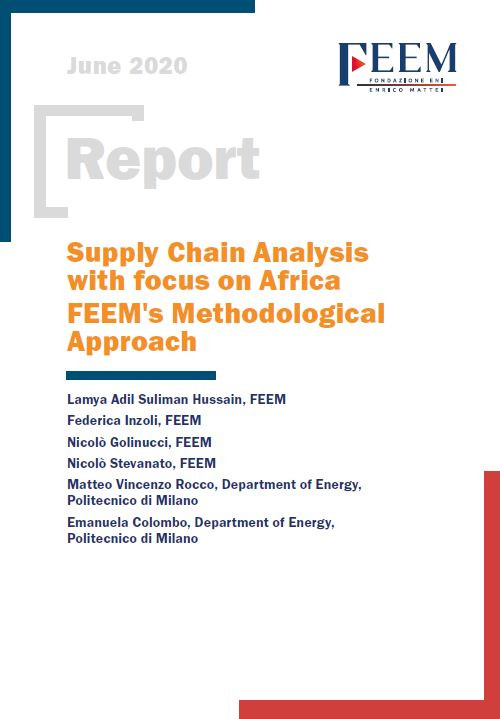Supply Chain Analysis with focus on Africa FEEM’s Methodological Approach

17.06.2020
Supply chain analysis is an expression used to refer to the process of investigating and studying the role and contribution of each economic agent along the supply chain (actors such as producers, traders and consumers, as well as legal entities such as businesses, authorities and development organizations) that contributes directly to the generation of a final product or service. It involves the evaluation of every stage of the supply chain starting from the raw material or intermediate product acquisition and finishes downstream, after several stages of transformation or increase in value and the final delivery of the product to the costumer.
The rise of globalization caused global trading to become more common, increasing the role and importance of supply chain management. Global supply chains usually extend between industrialized and developing countries, in which the variation of economy, regulations, legalisation and standards pose difficulties in managing the supply chain. Usually developing countries play the role of raw material suppliers or manufacturers to industrialized countries. However, they face problems affecting the performance of the supply chain, which include instability of governments and policies, corruption, labour intensive industries, deteriorated infrastructures, limited use of new technologies, underemployment, child labour, and low education level of the population.
This report provides a set of simple and easy to follow tools for analysing supply chains in developing countries.
Supply chain analysis is an expression used to refer to the process of investigating and studying the role and contribution of each economic agent along the supply chain (actors such as producers, traders and consumers, as well as legal entities such as businesses, authorities and development organizations) that contributes directly to the generation of a final product or service. It involves the evaluation of every stage of the supply chain starting from the raw material or intermediate product acquisition and finishes downstream, after several stages of transformation or increase in value and the final delivery of the product to the costumer.
The rise of globalization caused global trading to become more common, increasing the role and importance of supply chain management. Global supply chains usually extend between industrialized and developing countries, in which the variation of economy, regulations, legalisation and standards pose difficulties in managing the supply chain. Usually developing countries play the role of raw material suppliers or manufacturers to industrialized countries. However, they face problems affecting the performance of the supply chain, which include instability of governments and policies, corruption, labour intensive industries, deteriorated infrastructures, limited use of new technologies, underemployment, child labour, and low education level of the population.
This report provides a set of simple and easy to follow tools for analysing supply chains in developing countries.
